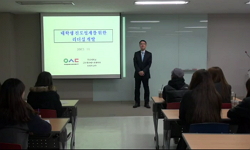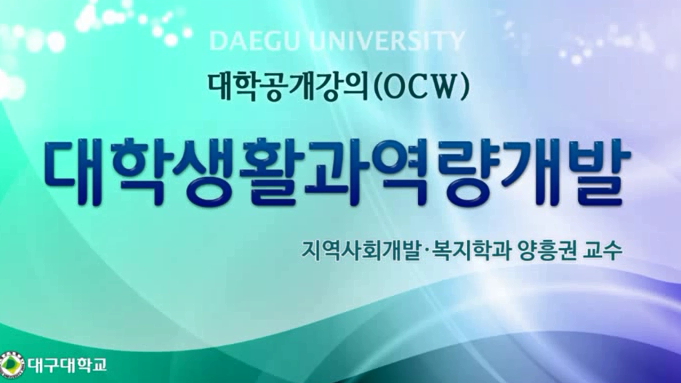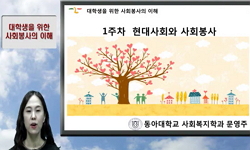본 연구는 대학생이 지각한 적대적 및 통제적 부모양육태도가 거부민감성을 매개로 관계적 공격성과 자기침묵에 영향을 미치는지를 분석하고, 이 매개효과가 이분법적 사고 수준에 따라 조...
http://chineseinput.net/에서 pinyin(병음)방식으로 중국어를 변환할 수 있습니다.
변환된 중국어를 복사하여 사용하시면 됩니다.
- 中文 을 입력하시려면 zhongwen을 입력하시고 space를누르시면됩니다.
- 北京 을 입력하시려면 beijing을 입력하시고 space를 누르시면 됩니다.

대학생이 지각한 적대적 및 통제적 부모양육태도가 관계적 공격성 및 자기침묵에 미치는 영향 -거부민감성의 매개효과와 이분법적 사고의 조절된 매개효과를 중심으로- = The Effects of Hostile and Controlling Parenting Styles Perceived by College Students on Relational Aggression and Self-silencing -Focusing on the Mediating Effect of Rejection Sensitivity and the Moderated Mediating Effect of Dichotomous Thinking-
한글로보기https://www.riss.kr/link?id=A109788446
- 저자
- 발행기관
- 학술지명
- 권호사항
-
발행연도
2025
-
작성언어
Korean
- 주제어
-
등재정보
KCI등재
-
자료형태
학술저널
-
수록면
213-236(24쪽)
- 제공처
-
0
상세조회 -
0
다운로드
부가정보
국문 초록 (Abstract)
본 연구는 대학생이 지각한 적대적 및 통제적 부모양육태도가 거부민감성을 매개로 관계적 공격성과 자기침묵에 영향을 미치는지를 분석하고, 이 매개효과가 이분법적 사고 수준에 따라 조절되는지를 검증하기 위해 수행되었다. 이를 위해 대구․경북 소재 4년제 대학 학부생을 대상으로 온라인 설문을 실시하여, 적대적 양육태도, 통제적 양육태도, 거부민감성, 관계적 공격성, 자기침묵, 이분법적 사고를 측정하였다. 599명의 응답을 수집하여 1차 기술통계 분석 후 주양육자를 부나 모로 응답한 522명을 최종 대상으로 설정하여 연구가설을 검증하였다. 거부민감성의 매개효과를 확인하기 위해 AMOS v.29를 사용하여 구조방정식 모형(SEM)을 분석하였다. 먼저, 잠재변인의 측정변인이 적합하게 구성되었는가를 살펴보기 위해 확인적 요인분석(CFA)을 실시한 후 구조모형의 적합도를 확인하고, 경로분석을 실시하여 매개효과를 확인하였다. 아울러, 이분법적 사고의 조절된 매개효과를 검증하기 위해 Hayes(2013)의 PROCESS Macro(Model 14)를 이용하여 분석하였다. 본 연구의 결과를 요약하면 다음과 같다. 첫째, 적대적 양육태도와 관계적 공격성 및 자기침묵 간의 관계에서 거부민감성은 매개효과를 나타냈고, 이때 거부민감성이 자기침묵에 미치는 영향력이 관계적 공격성에 미치는 영향력보다 크게 나타났다. 둘째, 거부민감성은 통제적 양육태도와 관계적 공격성 및 자기침묵 간의 관계에서 매개효과를 나타냈고, 이때 거부민감성이 자기침묵에 미치는 영향력이 관계적 공격성에 미치는 영향력보다 크게 나타났다. 셋째, 적대적 양육태도가 거부민감성을 통해 관계적 공격성 및 자기침묵에 미치는 간접효과가 이분법적 사고의 수준에 의해 조절되는 조절된 매개효과를 나타냈다. 넷째, 통제적 양육태도가 거부민감성을 통해 관계적 공격성 및 자기침묵에 미치는 간접효과가 이분법적 사고의 수준에 의해 조절되는 조절된 매개효과를 나타내었다. 이 연구 결과를 바탕으로 상담 및 심리치료에 대한 제언점 등을 논의하였다.
다국어 초록 (Multilingual Abstract)
The present study was conducted to analyze whether college students' perceived hostile and controlling parenting styles influence relational aggression and self-silencing via rejection sensitivity, and to test whether these mediating effects are moder...
The present study was conducted to analyze whether college students' perceived hostile and controlling parenting styles influence relational aggression and self-silencing via rejection sensitivity, and to test whether these mediating effects are moderated by dichotomous thinking levels. For this purpose, an online survey was conducted among undergraduate students at four-year universities in Daegu and Gyeongbuk to measure hostile parenting, controlling parenting, rejection sensitivity, relational aggression, self-silencing, and dichotomous thinking. After collecting 599 responses and conducting preliminary descriptive statistical analyses, the final sample of 522 respondents with a father or mother as the primary caregiver was selected to test the research hypotheses. To test the mediating effect of rejection sensitivity, a structural equation model (SEM) was analyzed using AMOS v.29. First, confirmatory factor analysis (CFA) was conducted to examine whether the measurement variables of the latent variables were appropriately constructed, and then the fit of the structural model was checked, and path analysis was conducted to check the mediating effect. In addition, Hayes’ (2013) PROCESS Macro (Model 14) was used to test the moderated mediating effect of dichotomous thinking. The results of this study are summarized as follows. First, rejection sensitivity mediated the relationship between hostile parenting and relational aggression and self-silencing, with the effect of rejection sensitivity on self-silencing being greater than the effect of relational aggression. Second, rejection sensitivity mediated the relationship between controlling parenting and relational aggression and self-silencing, with the effect of rejection sensitivity on self-silencing being greater than the effect of relational aggression. Third, the indirect effects of hostile parenting on relational aggression and self-silencing via rejection sensitivity were moderated by levels of dichotomous thinking. Fourth, the indirect effects of controlling parenting on relational aggression and self-silencing via rejection sensitivity were moderated by levels of dichotomous thinking. Implications for counseling and psychotherapy were discussed based on these findings.
동일학술지(권/호) 다른 논문
-
20대 대인관계문제와 자살사고의 관계: 대인존재감에 의해 조절된 우울의 매개효과
- 한국상담학회
- 김아란
- 2025
- KCI등재
-
대입 실패 경험을 한 대학생들의 외상 후 성장에 관한 합의적 질적 연구
- 한국상담학회
- 황민영
- 2025
- KCI등재
-
신중년 근로자의 경제적 제약과 직장 내 연령차별이 괜찮은 일에 미치는 영향: 일 자유의지의 매개효과와 성별․연령대별 차이
- 한국상담학회
- 박현정
- 2025
- KCI등재
-
대학생의 초기부적응도식과 감정표현불능증이 신체화에 미치는 영향: 부적응적 인지적 정서조절전략의 조절된 매개효과
- 한국상담학회
- 정연실
- 2025
- KCI등재




 KCI
KCI






